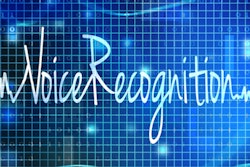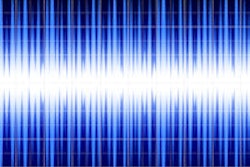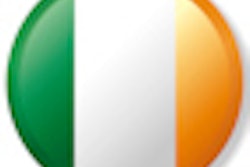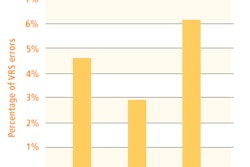A large Spanish study of speech recognition that included nearly 140,000 reports has confirmed the technology's ability to dramatically reduce report turnaround time while saving money.
Researchers found that speech recognition slashed report turnaround time for radiology reports from about 5.5 hours with conventional transcription to slightly more than one hour. Reductions in turnaround time for nuclear medicine reports were not as dramatic but were still significant.
Speech recognition was also credited for saving more than 100,000 euros ($135,000 U.S.) among the participating hospitals, according to Dr. Sara Guirao of Cetir Clínica Girona in Girona, Spain. She presented the team's findings at the 2010 European Congress of Radiology (ECR) in Vienna, Austria.
The use of integrated digital dictation and speech recognition in hospitals and clinics has been associated with an increased quality of service and treatment, contributing to efficient management of the healthcare enterprise and increases in individual productivity, freeing up resources for patient treatment and care, Guirao said.
The researchers wanted to see if speech recognition's benefits would apply to their own institution by measuring the report turnaround time following the addition of speech recognition capability to a digital dictation system, and comparing its performance in 2009 with reports prepared by transcription of recorded dictations. They also aimed to evaluate the voluntary adoption rate of speech recognition by the 50 radiologists and nuclear medicine physicians at the institution's 17 bilingual (Spanish and Catalan) diagnostic imaging centers, Guirao said.
During the study period, 139,712 reports were generated using SpeechMagic software (Nuance Communications, Burlington, MA). For the purposes of the study, the reporting process was divided into three steps: recording, editing, and signing. The researchers gathered data at each site and used statistical software to measure, compare, and evaluate the results, she said.
Report turnaround time by reporting method
|
Speech recognition also yielded significant cost savings over the transcriptionist-based method. For example, speech recognition had a cost of 0.25 euros (34¢ U.S.) per nuclear medicine exam, compared with 1.85 euros ($2.49 U.S.) per exam for a transcriptionist-based report. In aggregate, speech recognition led to cost savings of more than 107,000 euros ($144,000 U.S.) per year, she said.
In other findings, the rate of voluntary adoption of speech recognition picked up dramatically during the year. In January and February, only 6.3% and 6.9% of reports, respectively, were produced using speech recognition. That climbed to 18.5% in March before surging to 74.5% in April, 76.1% in May, 80.1% in June, and 85.1% in July.
After August, more than 90% of physicians adopted speech recognition. Also, the use of two languages did not negatively affect turnaround time, Guirao said.
"Speech-based information capturing led to an improvement in [turnaround time], an increase in transcription productivity, an increase in voluntary physician adoption, [provided a] comfortable method with hands-free navigation, and saved money," she said.
By Erik L. Ridley
AuntMinnie.com staff writer
April 12, 2010
Related Reading
U.K. hospitals speed reporting times with speech recognition, March 19, 2010
'Send to editor' speech recognition function boosts radiologist productivity, December 1, 2009
Individual factors affect gains from speech recognition, June 19, 2007
Speech recognition cuts report turnaround times, May 4, 2007
RIS-SR-PACS combo speeds radiology reporting, April 17, 2007
Copyright © 2010 AuntMinnie.com



















